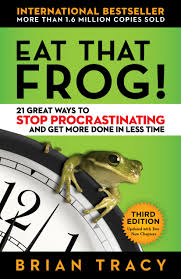Do you get stressed when you are planning for trips, travel, projects, etc? Its easy to get stressed. In this week’s VLOG, Rose Kress, LifeForce Yoga Director, shares some tips for reducing stress.
Failure to plan is planning to fail
Start with a list. Take time at the beginning of you day, or the night before, or at the beginning of your project to plan things out. What do you need to get done? Write down every little thing that has to happen to complete your project and be as clear as you can. Don’t worry about organizing things just yet, focus first on writing down everything that needs to get done. If you don’t like making a list on paper, try using a free online organizational tool like Asana, it even has an app to integrate with your phone. Packing for a trip? Write down every thing that you will need to bring with you (this also helps with over packing).
Making a list gets all of the thoughts about what needs to happen and when out of your head and onto a piece of paper. As long as you have that paper handy, you need not be anxious about remembering everything. When something pops into your head, you can just write it down.
 Organize your list
Organize your list
Now that you have your list, it is easy to get overwhelmed about the amount of things that are on your list. Start prioritizing your list. What needs to happen and when? How long will each task take? Outline your flow of action. Identify the most important parts of your project to help you identify what needs to happen first.
When you organize your list, do so on a calendar. What time of the day will you be doing what? You are planning out your day to the minute. It may sound excessive, but planning like this can help you to not work more that you have to, which is very helpful to those that are self-employed and working all the time. Imagine how good it would feel to be done with your day by 5pm!
With a prioritized plan of action and a completion date in set on a calendar, you only need to be worried about sticking to your list.
Author Stephen Covey‘s tool, from his book First Things First, can help you to figure out what is most important and how to prioritize your work.
Tackle the big stuff first
Completing all of the minor tasks first is a waste of time an energy. Start with the biggest task on your list. Author Brian Tracy equates the big task to a large frog that you have to eat (or something gross that you don’t like). Setting aside that frog to eat later means that it is on your mind the entire time that you are not eating it. Not only are you thinking about it, you are also dreading it. That frog is not going away, so get it out of the way first!
If your biggest task is too long to get done in an hour, you have not broken your to do list up enough. For example, you are setting out on an extended trip and you have many things to do before you leave. “Pack” is a task that is too big. Pack what. Break that down to “pack clothes,” or “pack snacks for the car,” or “pack toiletries.” Before you know it you will be fully organized and ready for your trip.
A habit of successful people is that they begin their day with the big projects that are income generating. This happens BEFORE checking email, facebook, instagram, twitter, website hits, gossip websites, or any of the other time wasting habits that you may have developed as a means of procrastination.
For a great and easy read on taking care of the big stuff first, check out Eat That Frog: 21 Great Ways to Stop Procrastinating and Get More Done in Less Time by Brian Tracy.
Set aside time for you
The most important thing about this whole process is that you take time to take care of you! Schedule yoga/breath breaks on your calendar. Working at a task for more that 30 minutes? Set a time for 30 minutes and get up and walk around for five minutes. It often seems counter productive to stop what you are doing, but taking breaks increases your productivity. The longer you sit, the more your body and system stagnates. There is a lot of research that shows sitting is more dangerous for your health than all of the other bad habits that we get into. The best afternoon break practice that you can do for yourself is Yoga Nidra.
Start your day with some practice and you will be more energized and clear for your whole day. You can start with an gently energizing practice in bed, like Stair Step Breath (download a free recording). Once you get out of bed, try some movement. You can go for a walk. Do a LifeForce Yoga Practice with Rose. Practice LifeForce Yoga to Beat the Blues with Amy Weintraub.
If you have your list and your plan in place, you mind will be clearer in the morning as you move into your self-care practices before your day starts!

Great!
super helpful, this was a lovely.
Thank you